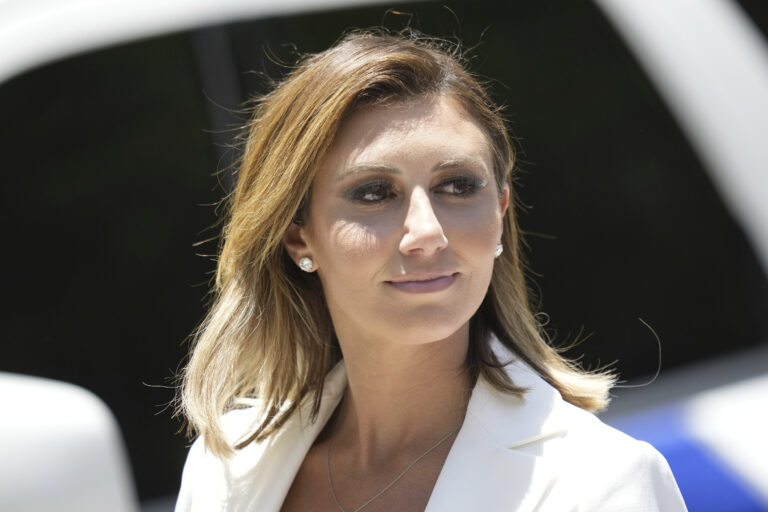Alina Habba’s role as acting U.S. Attorney for the District of New Jersey faces a new test after a defense attorney in a drug and weapons case filed a motion challenging her authority to prosecute it.
Attorney Thomas Mirigliano, representing Julien Giraud Jr., filed a motion on Sunday to have his client’s case dismissed, arguing that Habba “holds office unlawfully.”
Habba was appointed as the interim U.S. Attorney for the state in March, but she did not secure Senate confirmation before the end of her 120-day interim period. A panel of district judges then appointed Habba’s first assistant Desiree Leigh Grace to the U.S. Attorney role in a rare legal move.
But just hours later the Department of Justice (DOJ) removed Grace and the White House withdrew Habba’s nomination, allowing her to continue as U.S. attorney in an acting capacity. That designation, according to the DOJ, allows her to remain in office for an additional 210 days.
Newsweek contacted the DOJ, Habba, Grace and the U.S. Attorney’s Office for the District of New Jersey for comment by email outside regular working hours.

Rebecca Blackwell/AP
Why It Matters
Mirigliano’s filing marks a key development in the ongoing dispute over the leadership of the U.S. Attorney’s Office in New Jersey, which has raised questions about the separation of powers, executive authority over justice and the independence of federal prosecutions.
The outcome of Mirigliano’s filing could lead to a series of similar legal challenges against the U.S. Attorney’s office in New Jersey.
What To Know
Giraud Jr. was charged in 2021 with weapons and drugs charges. He pleaded not guilty and was set to go to trial on August 4.
Mirigliano wrote in his filing that Grace, who had been appointed by a panel of federal judge’s days earlier, had lawfully assumed the role of U.S. Attorney and that the DOJ’s intervention to reinstate Habba represented an overreach of executive authority.
In a nine-page filing, he said his client was “facing an imminent criminal trial proceeding under questionable legal authority,” and asked for the charges to be thrown out or that Habba and her assistants be barred from exercising further prosecutorial powers in the case.
He also said that Habba’s role not only violates federal law but also “raises serious constitutional concerns about the separation of powers between the executive and judicial branches.”
On Monday, U.S. District Judge Edward Kiel put Giraud Jr.’s trial on hold and transferred the legal challenge to Chief District Judge Matthew Brann of the Middle District of Pennsylvania. Brann was appointed by President Barack Obama in 2012.
What People Are Saying
Attorney General Pam Bondi said in a post on X last week: “Alina Habba has been doing a great job in making NJ safe again. Nonetheless, politically minded judges refused to allow her to continue in her position, replacing Alina with the First Assistant. Accordingly, the First Assistant United States Attorney in New Jersey has just been removed.”
Bondi added: “This Department of Justice does not tolerate rogue judges — especially when they threaten the President’s core Article II powers.”
White House spokesperson Harrison Fields said in a statement last week: “The Trump Administration looks forward to her final confirmation in the U.S. Senate and will work tirelessly to ensure the people of New Jersey are well represented.”
Desiree Leigh Grace said in a LinkedIn post on July 24: “Yesterday the District Judges for the District of New Jersey selected me to serve as the United States Attorney for the District of New Jersey. It will forever be the greatest honor that they selected me on merit, and I’m prepared to follow that Order and begin to serve in accordance with the law.”
What Happens Next
Habba remains in charge of the U.S. Attorney’s Office for the District of New Jersey for now, continuing to oversee numerous active criminal cases.
Judge Brann will now decide whether the legal challenge brought by Mirigliano will move forward.


